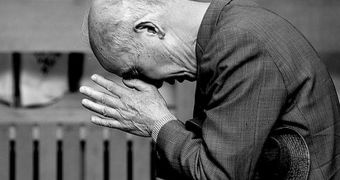A team of experts at the Indiana University reveals that praying for those who are sick can indeed have beneficial consequences. It was found for example that people praying in close proximity to their loved ones instilled the most significant changes, whereas those who prayed in separate rooms, or farther away, had the smallest effect. The experts involved in the new study determined therefore that praying may indeed help with the healing process.
“We chose to investigate 'proximal' prayer because that is how a lot of prayer for healing is actually practiced by Pentecostal and Charismatic Christians around the world. These constitute the fastest-growing Christian subgroups globally, with some 500 million adherents, and they are among those most likely to pray expectantly for healing,” explains Indiana Department of Religious Studies associate professor Candy Gunther Brown. She was the leader of the new study, which will be published in the September 2010 issue of the esteemed Southern Medical Journal.
The paper, called “Study of the Therapeutic Effects of Proximal Intercessory Prayer (STEPP) on Auditory and Visual Impairments in Rural Mozambique,” highlights that the effects are most widely felt in economically disadvantaged areas, such as Africa. “Proximal intercessory prayer” (PIP), as the team calls it, proved in the research to be helpful in making sick people experience improvements in their vision and hearing. In some of the world's poorest countries, access to hearing aids and glasses is restricted only to those who are very rich.
“When people feel that they have a serious need for healing, they are willing to try almost anything. If they feel that a particular religious or spiritual practice healed them, they are much more likely to become an adherent. This phenomenon, more than any other, accounts for the growth of these Christian subgroups globally,” the expert adds. Brown is also the editor of a forthcoming book on Global Pentecostal and Charismatic Healing, which will be published by the Oxford University Press in January 2011.
“If empirical research continues to indicate that PIP may be therapeutically beneficial, then – whether or not the mechanisms are adequately understood – there are ethical and nonpartisan public policy reasons to encourage further related research. It is a primary privilege and responsibility of medical science to pursue a better understanding of therapeutic inventions that may advance global health, especially in contexts where conventional medical treatments are inadequate or unavailable,” Brown adds.
“Whatever their views about the efficacy of healing prayer and about whether it belongs in the armamentarium of medicine, clinicians and believers share core commitments to healing whenever it is possible, and to meaningful acceptance when it is not,” concludes Harvard Medical School professor Dr. John Peteet, who accompanies the findings with an editorial in the current issue of the Southern Medical Journal.

 14 DAY TRIAL //
14 DAY TRIAL //